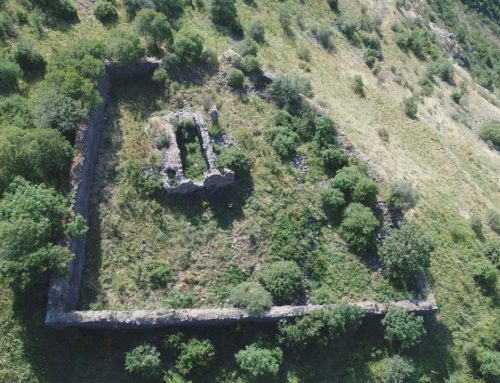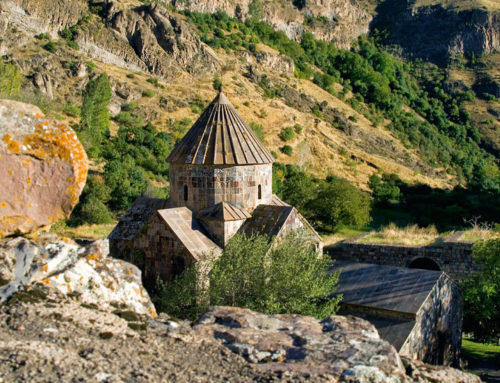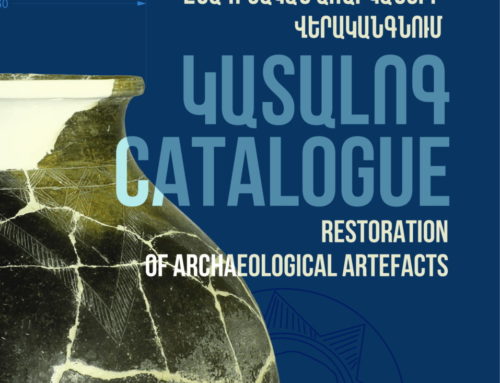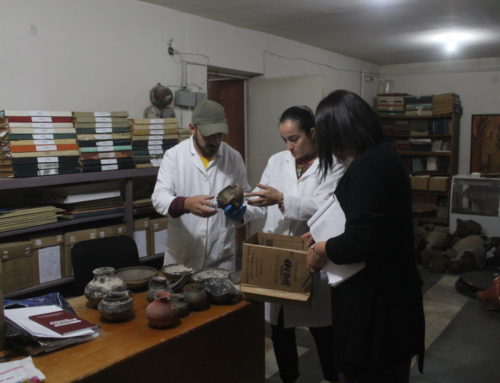Protection Service NCSO’s Director Ara Tarverdyan and his deputy Karen Pahlevanyan held a working consultation in Vayots Dzor regional service on June 21. They listened to the responsibles of the regional service, and the directors of “Arpi” natural-historical reserve and “Gladzor University” historical-cultural reserve.
At the beginning of the consultation Melanya Dovlatyan the head of the regional service presented the monuments under the reservation of NCSO. In her words the preservation of more than 1400 cultural-historical monuments included in the state list is implemented by 24 employees of the regional service. Dovlatyan also mentioned about Smbataberd, Selim’s Caravanserai, Caxac qar, Shativanq monastery, Gnishik’s graveyard, ST. Astvatsatsin and Gndevaz churches in Xachik village, Qarakop monastery and other monuments. The head of the regional service, highlighted the importance of their preservation as well as the renovation of those monuments.
Vayots Dzor region does not lack tourists indeed, but the popularization of cultural-historical heritage will be implemented in new considerations.
Protection Service NCSO adopts a new working principle and the first assignment has been given to Vayots Dzor regional service.
“The guard of the monument will also implement monitoring, to find out which monuments are most of all attractive for the tourists, what interests them and what will contribute to the development of tourism”, mentioned Ara Tarverdyan in his speech.
The director entrusted the head of the regional service with the provision of information about the carried out monitoring every 10 days’. He also highlighted the importance of contemporizing infrastructures in tourism places.
Ara Tarverdyan’s next assignment refered to the translation of the information about the most famous monuments of the region in English. In his words the flyers will, in their turn, tell briefly about our “cultural passports”.







